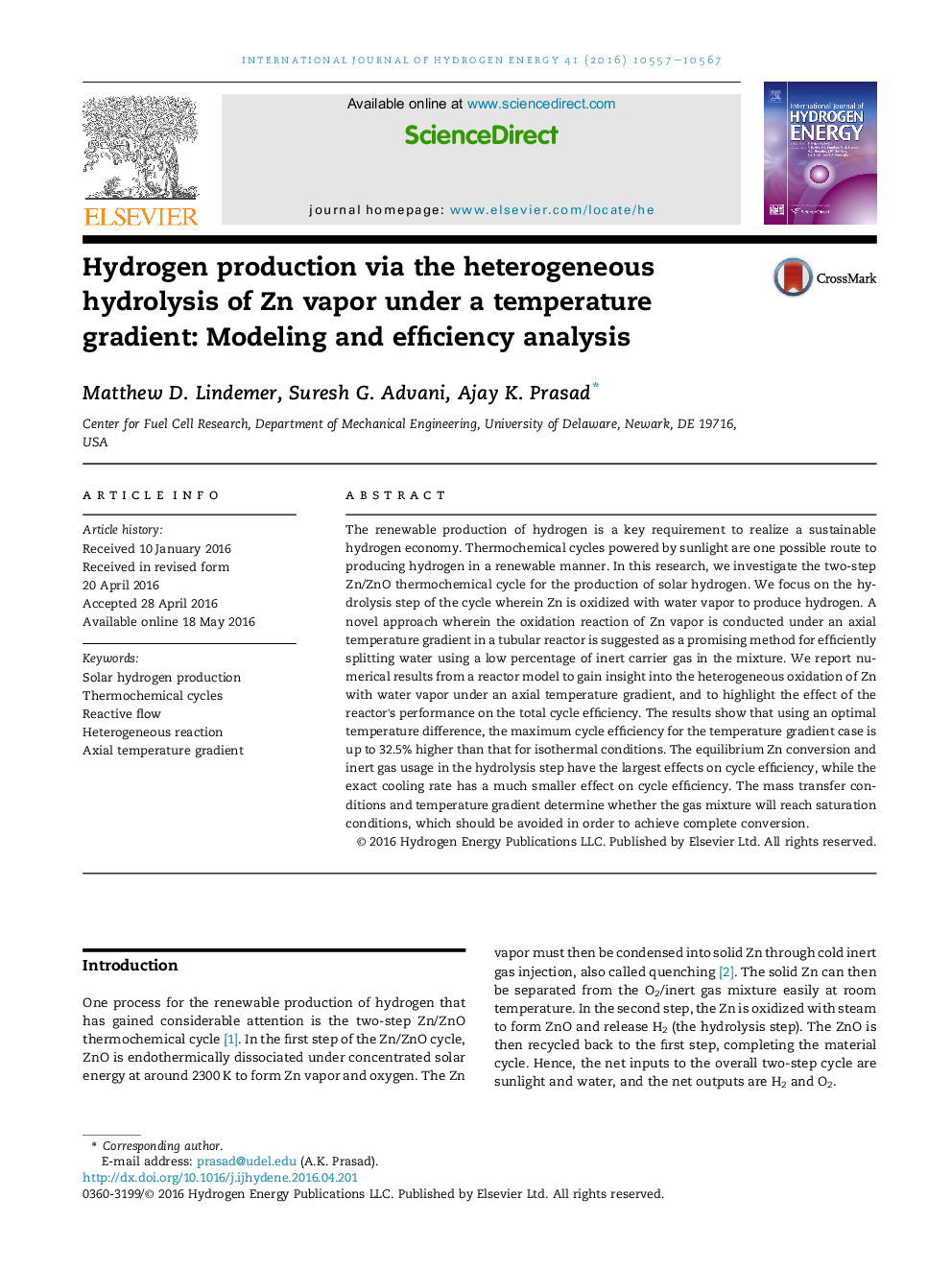| کد مقاله | کد نشریه | سال انتشار | مقاله انگلیسی | نسخه تمام متن |
|---|---|---|---|---|
| 1276781 | 1497400 | 2016 | 11 صفحه PDF | دانلود رایگان |

• The heterogeneous hydrolysis of Zn vapor under a temperature gradient is studied for use in the Zn/ZnO cycle.
• A reactor model and thermodynamic analysis are used to examine the effects of hydrolysis on efficiency and heat recovery.
• Using a temperature gradient, inert gas usage can be greatly reduced while achieving complete conversion of Zn to ZnO.
• The maximum efficiency for the temperature gradient case is up to 32.5% higher than that for constant temperature conditions.
• The exact temperature gradient has a weak effect on efficiency, but cooling the mixture too fast results in Zn condensation.
The renewable production of hydrogen is a key requirement to realize a sustainable hydrogen economy. Thermochemical cycles powered by sunlight are one possible route to producing hydrogen in a renewable manner. In this research, we investigate the two-step Zn/ZnO thermochemical cycle for the production of solar hydrogen. We focus on the hydrolysis step of the cycle wherein Zn is oxidized with water vapor to produce hydrogen. A novel approach wherein the oxidation reaction of Zn vapor is conducted under an axial temperature gradient in a tubular reactor is suggested as a promising method for efficiently splitting water using a low percentage of inert carrier gas in the mixture. We report numerical results from a reactor model to gain insight into the heterogeneous oxidation of Zn with water vapor under an axial temperature gradient, and to highlight the effect of the reactor's performance on the total cycle efficiency. The results show that using an optimal temperature difference, the maximum cycle efficiency for the temperature gradient case is up to 32.5% higher than that for isothermal conditions. The equilibrium Zn conversion and inert gas usage in the hydrolysis step have the largest effects on cycle efficiency, while the exact cooling rate has a much smaller effect on cycle efficiency. The mass transfer conditions and temperature gradient determine whether the gas mixture will reach saturation conditions, which should be avoided in order to achieve complete conversion.
Journal: International Journal of Hydrogen Energy - Volume 41, Issue 25, 6 July 2016, Pages 10557–10567